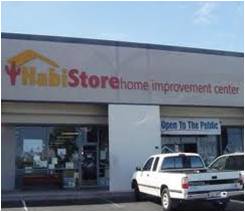

The Arizona Network of Real Estate invited me to give a presentation to their group about my book “Fix em Up Rent em Out.”
I thought the video might be available to the general public but it looks as though that’s not going to happen.

So here are:
The 5 Rules on How to Lose Money and Get Your Rental Property Trashed by Tenants (based on an article by Andrew Stefanczyk)
1. Choose the Worst Possible Area
Location will determine the kinds of tenants you will attract, and how much rent you can fairly charge.
The best approach is to identify target areas in your city where you would like to focus your purchases. I like to focus on “transition zones” (where there is a mixture of housing types) which are good for investors because we can purchase properties at lower prices, and there is high demand to live in these areas.
2. Put in the very best of things when fixing up an investment property
Use new and expensive sinks, doors, refrigerators, light fixtures, etc. Never shop at stores that recycle construction supplies. Spare no expense.
Of course, the problem is that tenants will not take care of our properties as well as we would,
so we end up with many broken or worn out items. The better alternative is to shop at used building supply stores, and to purchase good, inexpensive, supplies for our rental houses. One such store is the Habitat for Humanity store.
3. Make sure you have absolutely no experience in make basic repairs
Not knowing how to change electrical outlets, unclog drains & toilets, and replace broken windows will cost quite a bit down the road.
The better way is to:
A. Learn as you go, and comply with EPA regulations
B. Take construction classes at junior college
C. Learn from handymen and contractors
D. Take the Zen approach to house repair — learn to do everything yourself
5. Utilize fix-up books, investing books, & YouTube to find answers on how to make house repairs
4. Do not screen your tenants
Being as uninformed as possible about who you rent to may be the best way to lose money as a landlord. Do not ask for or check references. Do not call previous landlords and ask questions like, did they pay rent on time? How was the condition of the house or apartment when they left? Did they ever disturb neighbors with loud music or shouting matches? How often would you have to make special trips for repairs? Being as uninformed as possible about whom you rent to will make a huge difference and will increase the chances that you will get tenants that will trash your property and refuse to pay rent.
However, the better way is to:
A. Use a checklist for tenants. Decide what kind of tenant that you want ahead of time.
B. Look at their paycheck to verify income.
C. Check county records to see what illegal activities they’ve been up to.
D. Know the Fair Housing Act. Never select tenants based strictly on “race, color, national origin, religion, sex, familial status or handicap (disability).”
E. To find new tenants, use Craiglist, put up arrow signs, and host an “open house.”
5. Make sure you have not learned about your rights as a landlord
Be completely unfamiliar with the eviction process to guarantee long, drawn out disputes with tenants. Don’t keep up to date financial records or copies of correspondence with tenants. Most states provide online information about tenant and landlord rights so avoid reading these.
A. Get an authoritative legal guide like “The Arizona Landlord Deskbook” by Carlton Cassler.
B. Copy forms and letters from your legal book to send to tenants.
C. Comply with legal ways to deal with bad tenants.
D. Use memos to communicate with tenants so you have a record of correspondence.
E. Use a month to month lease instead of long-term lease to more easily scrape off bad tenants like barnacles.
F. Reward tenants for paying on time by discounting their rent $25. 
G. Send good tenants Target gift cards for Xmas.
In Conclusion
“Each of us has cause to think with deep gratitude of those who have lighted the flame within us.”
–Albert Schweitzer
Carve Out Your Niche Update
My award-winning book on self-publishing, Carve Out Your Niche, is now available in Kindle format.
The Midwest Book Review called Carve Out Your Niche,
“Invaluable for anyone seeking to successfully write, publish, and market their own work.”
Related Posts









